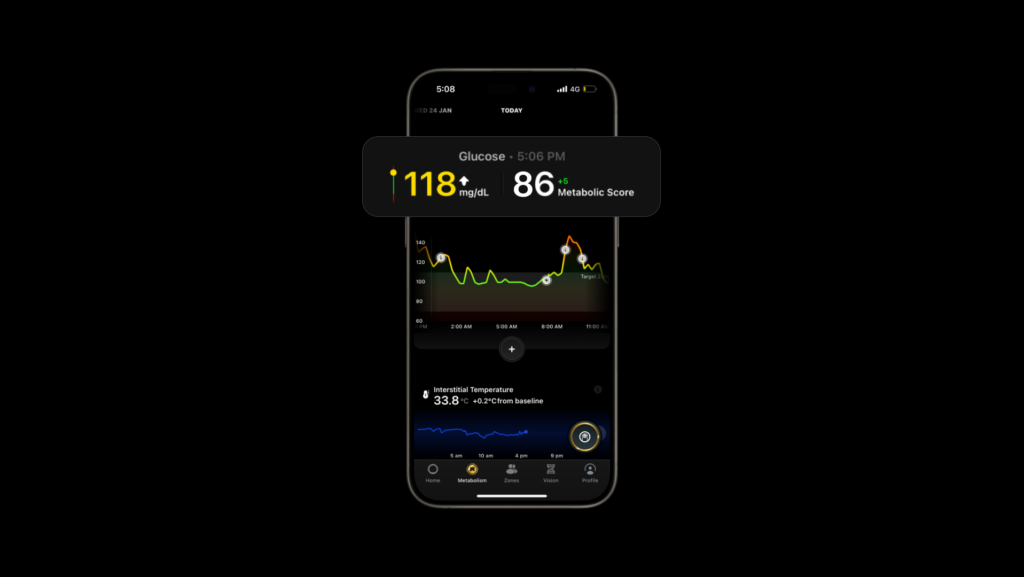Introduction
Not only is training for and finishing a marathon a huge achievement, it’s also a great way to stay in shape and fulfil one’s fitness goals. Completing a marathon is no small feat, because it is one of the most challenging endurance events one can train for, with a distance of 26.2 miles (42.19 kilometres). The risk of injury is high and many weeks or months of training are required.
Why is recovery important?
Training for a marathon is serious business. But just as important is the process of recovery, and taking the right steps, because a strenuous event like this can result in many consequences for the body. Of course, there are the sore muscles and the sense of exhaustion, but there are also other factors which are less commonly known, which indicate the degree of effects that an extreme-endurance event like a marathon can have. Some of these effects are listed below:
- Immune function is suppressed in the hours following a marathon, making it more difficult for your body to fight off illness that could arise from bacteria or a virus. (1)
- Muscle strength is reduced (and inflammation and cell damage persists for up to two weeks after the marathon).
- Even the heart may be damaged by the stresses of a marathon, particularly if beginners do not train sufficiently or take the right steps before the marathon. (2)
- Muscle memory and coordination are slightly compromised, making a repetitive stress injury or muscle tear more likely in the weeks following the marathon.
- Cellular damage, measured by the levels of creatine-kinase (CK), in the blood, is increased following a marathon. CK is an enzyme that is linked with skeletal muscle and heart damage at a cellular level. One study concluded that CK damage persisted more than seven days after a marathon, while another study discovered the presence of myoglobin, another marker of damage to skeletal and heart tissue, in the bloodstream for 3–4 days after the race. (3, 4) Both studies clearly indicate that the body needs to rejuvenate after a marathon to fully recover from the cellular damage.
Unlike muscle soreness or tiredness, these markers of hard training and racing aren’t always noticeable. But they indicate to us why it is necessary to take some time off after a marathon and recover properly, even if you don’t feel sore after a day or two. Most of these issues are on account of the length of a marathon and do not arise in the case of shorter-distance events like 5 or 10 km runs.
Thus, the question of how to recover from a marathon is particularly important. Not just for your fitness and health but also to make sure that you can continue to run and prepare for the next one.
Five key elements of recovery after a marathon
1. Just after the race: action points
One thing that is essential just after finishing the race, which most runners won’t want to hear after running 42 km, is not to stop immediately. Walking is advised for at least 10–15 minutes to cool down and gradually return to a state of rest, rather than sitting or lying down immediately after the race. This will help with two important issues:
- Low blood pressure often accompanies a sudden pause in running, as blood tends to pool in the legs (an abrupt halt means that too much blood may continue to be pumped to your legs and lead to sudden dizziness). The cool-down process prevents this and enables continued circulation.
- Walking will also allow extra blood flow, which can clear your muscles and bloodstream of exercise by-products (like lactate, cortisol and adrenaline).
Many people think that after a run as long as a marathon, one needs to stretch. However, this could cause further damage to the muscles, as you’ve already pushed them to the extreme. It’s best to continue to slowly move and walk around, and resort to things like stretching only after you’ve had some time to rest and replenish. (5)
Continuing to hydrate during or right after the race is also important because your body will lose a lot of fluid during the marathon. At most marathons, there are fluids and foods available at the finish line. As soon as possible, start rehydrating and consuming calories to give the muscles the energy that needs to be replenished. Although your stomach is unlikely to be able to handle solid food immediately after the marathon, a light snack and lots of fluids are important for recovery.
2. Eating well
A little while after the race, your stomach is likely to feel queasy and your body will be dehydrated. After drinking as many fluids as possible (ideally, sports drinks which contain electrolytes), you should try and consume a carb-heavy snack like bananas, dried fruits, nuts or pretzels.
While nutrition is always important, for the few hours or days after a marathon, the most critical thing is to begin refuelling with as many calories as possible. Within a couple of hours, try to have a hearty meal with sufficient amounts of carbohydrates, protein and fat that will help you start the process of recovery. Make sure to continue to drink plenty of fluids throughout the day after a marathon. Focus on carbohydrate-rich foods. Protein is also important as it helps to rebuild damaged muscles.
For the first few hours, continue to eat small portions. As soon as your stomach is ready to digest more substantial food, make sure to grab a well-balanced meal. If there’s ever a time for a cheat day, this is it, because your body needs calories more than anything else.
One thing to keep in mind is limiting alcohol intake because it tends to increase dehydration and slow down the absorption of nutrients, which is essential for your body in that state. (6)
3. Good sleep
We all know how important sleep is for recovery and rejuvenation.(7) After an intense event like a marathon, this is particularly critical. After a marathon, it might be difficult to sleep because the adrenaline levels will be much higher and the muscles might be twitching or exhausted. This is completely normal, but it is still essential to try and rest or use techniques that will help you relax, like ambient lighting, a relaxing bath, avoiding screen time, and so on.
Some people recommend taking a daytime nap on the day of a marathon, if possible, since sleep is the state in which the body is most efficient at muscle and cell repair. At night, try to go to bed early and get as much rest as possible. For a few days after the marathon, it is important to try and get more sleep than usual to aid the recovery process.
4. Active recovery
When you’ve been running for 2–4 hours, your body experiences a significant degree of muscle damage. You are likely to feel the heaviness in your legs setting in after you’ve finished your activity, and over the course of the following days, almost all runners experience delayed-onset muscle soreness (DOMS), resulting in reduced muscle strength. Studies have indicated that events like marathons may lead to muscle fibre necrosis (a form of soft tissue infection or degeneration) and significant inflammation, which is at its peak 1–4 days after the race. (8) An ice bath or warm shower have both been shown to curb inflammation and help with muscle recovery.
To avoid muscle damage and long-term injury, active recovery over the few days following a marathon is recommended. Active recovery focuses on low-impact exercises and movement to increase blood circulation, loosen potentially stiff joints and tendons and aid the process of overall recovery by preventing you from being too restless after a marathon.
It is not advised to run for at least 5–7 days following a marathon, depending on your rate of recovery. However, short walks, cross training in a pool or light swimming are all good activities that will promote blood flow and aid the recovery process without straining your muscles too much. Most experts say that it takes at least 2–4 weeks to fully recover from the effects of training for and running a marathon. During this time, active recovery exercises, without any strict or intense workout plan, are particularly useful— like walking, swimming, yoga or other low-intensity activities that improve circulation and flexibility. (9)
A short swim is particularly helpful in terms of improving circulation and rehabilitation from muscle fatigue. The goal of active recovery is not to merely do a workout—it is to help your muscular and skeletal systems to repair sufficiently. Monitoring key physiological markers like your resting heart rate or heart rate variability can help you determine the speed at which your body is recovering. About a week after the marathon, you can get back to short jogs spanning 15–30 minutes and then slowly increase the duration when your muscles feel ready. But the consensus suggests it’s ideal to take at least 5–7 days off from running, to make sure the muscles and connective tissues can heal.
5. Other aids
Apart from food, sleep and active recovery, there are various other aids that reportedly help the process of recovering after a marathon. Some of them are:
- Massages: A day or two after a marathon it might be a good idea to get a massage. It is important to get a light, therapeutic massage, which may enhance blood flow and provide muscle relief without too much pressure. Deep tissue or sports massages are best avoided for at least for 1–2 weeks after a race. Make sure you alert your masseuse that you’ve just completed a marathon so they can use the most suitable and gentle techniques.
- Stretching: DOMS can start a few hours or a day after the marathon, and is likely to peak 48–72 hours after the event. Light stretching, along with cold or heat therapy, can aid the process of recovery and help to avoid or aggravate injuries. If the pain lasts longer than a week or continues to get worse, then it is best to seek the advice of a physiotherapist or your doctor, as that is most likely an injury rather than just DOMS.
- Breathwork and meditation: For endurance athletes, the importance of breathwork and even meditation cannot be overstated. Various sources suggest that using deep breathing techniques, meditation and other forms of breathwork can have a significant effect in terms of relaxing the body after a marathon, reducing stress levels, helping muscle growth, lowering inflammation levels and improving recovery times.(10) In addition to relaxing the muscles, meditation and deep breathing have also been shown to help with the process of falling asleep.
- Other techniques: Anecdotal evidence from runners and coaches also suggests there are other tools that might help to recover from a marathon— like using a foam roller, massage sticks and compression socks have been reported to hasten the process of recovery after the race. (11)
Conclusion
Completing a marathon is no joke—it is an intense activity that will take a toll on your body, and the distance of 42.19 km can adversely affect your muscles, immunity and cardiac health in the short term, particularly without sufficient training. By keeping in mind the steps required for a proper recovery, ensuring you sleep and eat properly, practising light forms of exercise and using techniques like stretching, massages and meditation to aid the process, you can get back to running within a couple of weeks. The day of the race, it’s essential to be particularly careful to rehydrate yourself and get calories in, as well as ensuring proper sleep for the next few days. After the race, it is important to keep active recovery in mind, with simple activities that do not strain the muscles but help them to recover faster and relieve DOMS. Do remember the importance of the time away from intense physical exertion, because it can enable you to complete the next race and avoid injuries or long-term muscle damage. Keeping these simple methods in mind can allow for proper recovery and optimal fitness, so you can keep running marathons without adverse effects.
Disclaimer: The contents of this article are for general information and educational purposes only. It neither provides any medical advice nor intends to substitute professional medical opinion on the treatment, diagnosis, prevention or alleviation of any disease, disorder or disability. Always consult with your doctor or qualified healthcare professional about your health condition and/or concerns and before undertaking a new healthcare regimen including making any dietary or lifestyle changes.
References
- https://pubmed.ncbi.nlm.nih.gov/17465622/
- https://www.washingtonpost.com/lifestyle/wellness/study-bolsters-findings-that-marathons-increase-heart-stress-but-what-it-means-is-unclear/2018/12/01/9c2768e0-f4cd-11e8-aeea-b85fd44449f5_story.html?utm_term=.3ed72a5c2ec5
- https://www.sciencedirect.com/science/article/abs/pii/S0891584901007298
- https://bjsm.bmj.com/content/38/3/292.abstract
- https://www.theguardian.com/lifeandstyle/2018/apr/22/everything-you-need-to-know-about-recovering-from-a-marathon







